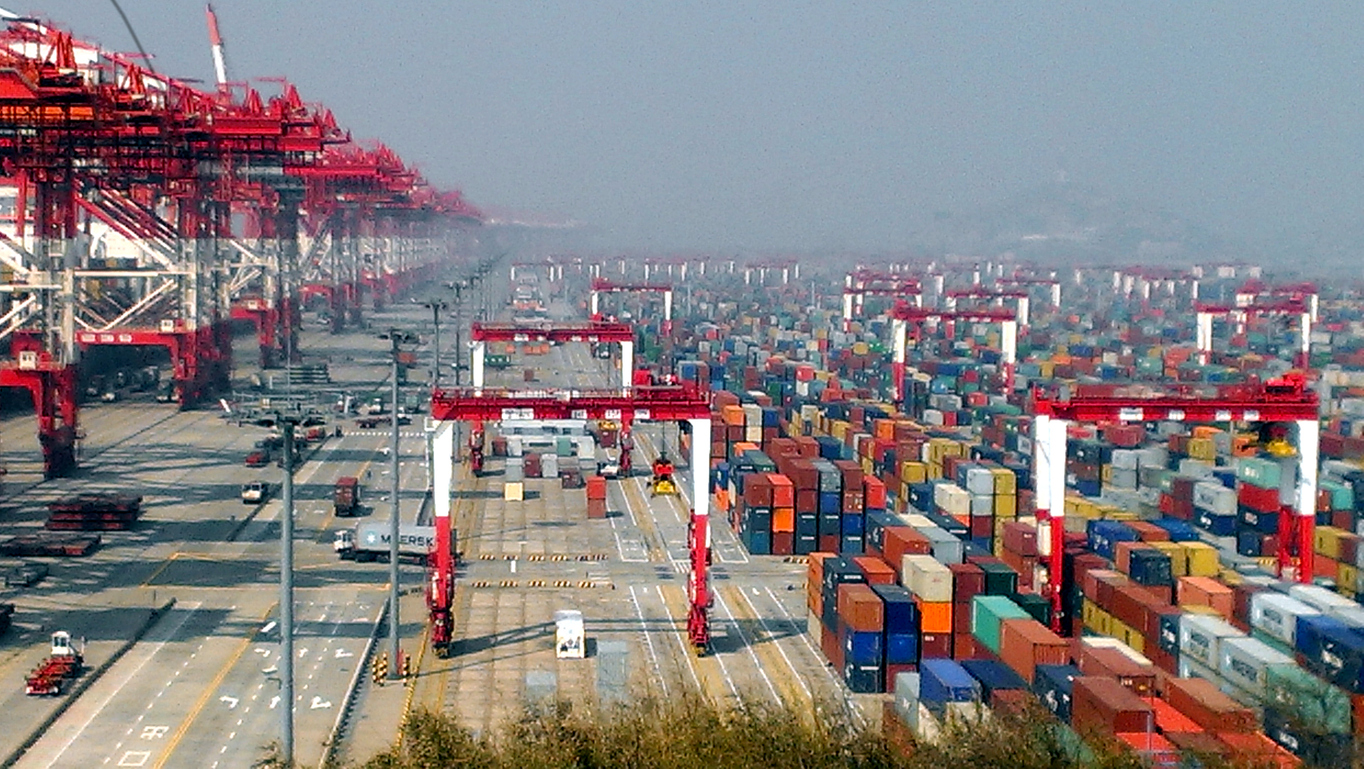The Port of Shanghai: A Strategic Gateway for Global Trade and African Importers
The Port of Shanghai, the world’s busiest container port, plays a crucial role in global trade flows and remains a key gateway for businesses sourcing goods from China. Its scale, efficiency, and deep-water capabilities make it one of the most reliable hubs for importing fast-moving consumer goods (FMCG), electronics, construction materials, automotive parts, household goods, and other wholesale products.
For companies across Africa and the UK, understanding how the Port of Shanghai operates—and how to leverage its strengths—can significantly improve procurement, reduce costs, and stabilise supply chains. As a trusted import/export partner, Wigmore Trading works closely with suppliers throughout China and uses Shanghai as a primary consolidation and shipping point for its clients.
Why the Port of Shanghai Matters for African and UK Importers
The Port of Shanghai handles tens of millions of containers annually, making it the world’s largest container port by throughput. Located at the mouth of the Yangtze River, it offers direct access to China’s industrial heartland and global maritime trade lanes.
For importers, this means several advantages:
1. Wide Product Availability
Shanghai links thousands of Chinese manufacturers and wholesalers, giving buyers access to a huge variety of consumer and industrial products. Whether sourcing groceries, beverages, cosmetics, electronics, textiles, or building materials, the port acts as a central gateway for export-ready goods.
2. Faster and Reliable Shipping Schedules
Shipping routes from Shanghai to major African ports—such as Lagos, Tema, Durban, Mombasa, and Abidjan—operate with high frequency. This ensures consistent vessel availability and shorter delays, helping importers maintain stable inventory flows.
3. Cost-Efficiency Across the Supply Chain
Due to its scale and automation, the Port of Shanghai offers competitive container handling fees, reducing overall logistics costs. High operational efficiency also means fewer delays, which minimises demurrage risks and unexpected expenses.
Wigmore Trading helps importers navigate these advantages by coordinating freight arrangements, supplier communications, and end-to-end logistics support.
Key Infrastructure That Makes the Port of Shanghai a Global Leader
Several world-class facilities make the Port of Shanghai exceptionally efficient:
Yangshan Deep-Water Port
This advanced terminal handles the world’s largest container vessels. It features automated cranes, digital monitoring systems, and optimised berthing, allowing for quick vessel turnaround.
Waigaoqiao Port Area
Known for its extensive storage capacity, customs clearance centres, and warehousing options, Waigaoqiao is ideal for handling large volumes of export goods. Wigmore Trading often utilises this area to consolidate orders from multiple suppliers into a single shipment.
Lingang Logistics Zone
A bonded logistics area offering streamlined customs processes. For certain product categories, businesses benefit from reduced handling time and more flexible storage arrangements.
These combined infrastructures enable smooth inbound and outbound flows, reducing bottlenecks and boosting supply chain reliability.
The Port of Shanghai’s Importance for FMCG and Wholesale Distribution
Importers dealing in FMCG and wholesale consumer goods rely on speed, consistency, and cost control. The Port of Shanghai excels in all three.
High-Volume Product Movement
Packaged foods, beverages, personal care items, household goods, electronics, and clothing are shipped in enormous quantities from Shanghai each day. This ensures strong availability and competitive pricing for bulk buyers.
Cold-Chain Capabilities
For businesses handling frozen or chilled goods, Shanghai’s refrigerated storage and monitoring systems maintain strict temperature controls. This is essential for importers of dairy, poultry, seafood, and other perishables.
Ideal for Consolidation
Wholesale importers often purchase from multiple Chinese suppliers. Shanghai’s infrastructure allows for smooth consolidation into full container loads (FCL) or mixed less-than-container loads (LCL).
Wigmore Trading frequently manages consolidation, reducing complexity for clients and helping them optimise shipping costs.
How the Port of Shanghai Supports African Trade
Africa continues to be one of the fastest-growing destinations for Chinese exports, and Shanghai is central to that growth.
Benefits for African Importers:
-
Reliable schedules and frequent sailings
-
Competitive freight rates
-
A large, diverse supplier base
-
Consistent product availability
-
Options for both FCL and LCL shipments
Wigmore Trading supports African businesses by identifying reputable manufacturers, conducting quality checks, managing export documentation, and coordinating container loading to ensure goods meet import standards.
How Wigmore Trading Simplifies Imports from the Port of Shanghai
Wigmore Trading provides end-to-end support for companies sourcing through Shanghai:
1. Supplier Sourcing
We identify trustworthy manufacturers and wholesalers across China, ensuring high-quality products at competitive market prices.
2. Product Quality Control
Inspections are arranged before shipment to ensure goods meet specification, packaging standards, and regulatory requirements.
3. Consolidation and Freight Handling
We manage container loading, consolidation from multiple factories, inland transport, and ocean freight arrangements.
4. Customs and Documentation
Wigmore Trading ensures that commercial invoices, packing lists, certificates of origin, and other required documents are correctly prepared for smooth import clearance.
Contact Wigmore Trading today to streamline your sourcing and shipping through the Port of Shanghai.







Comments are closed.